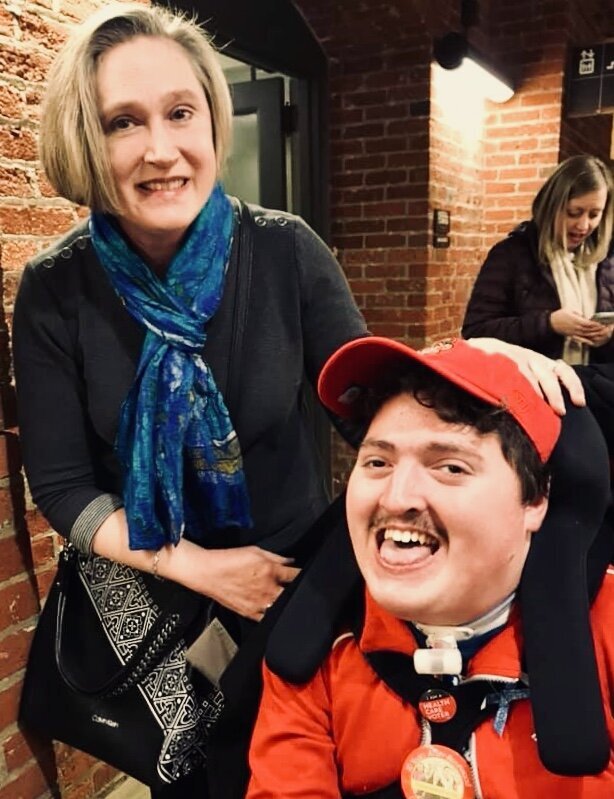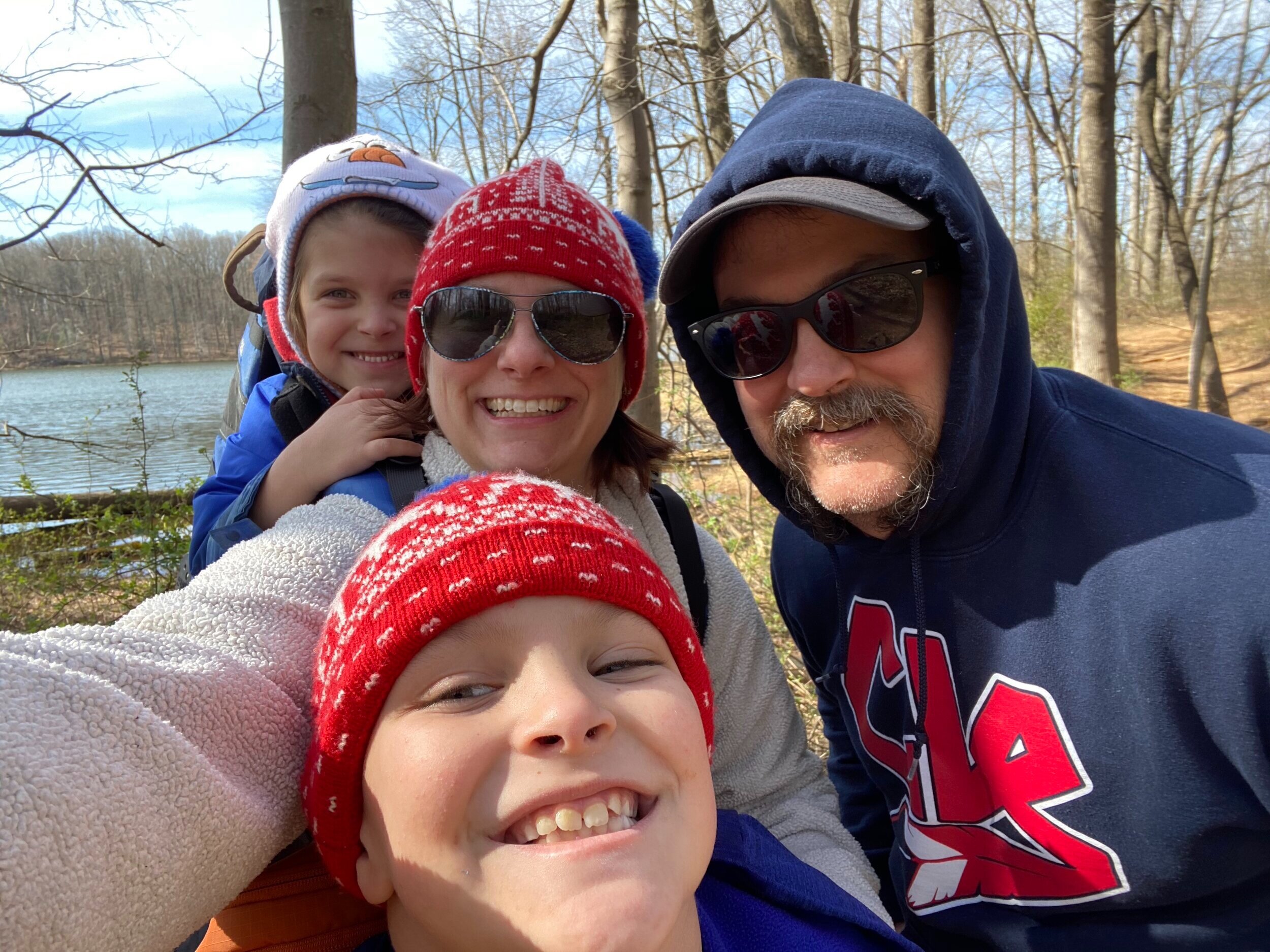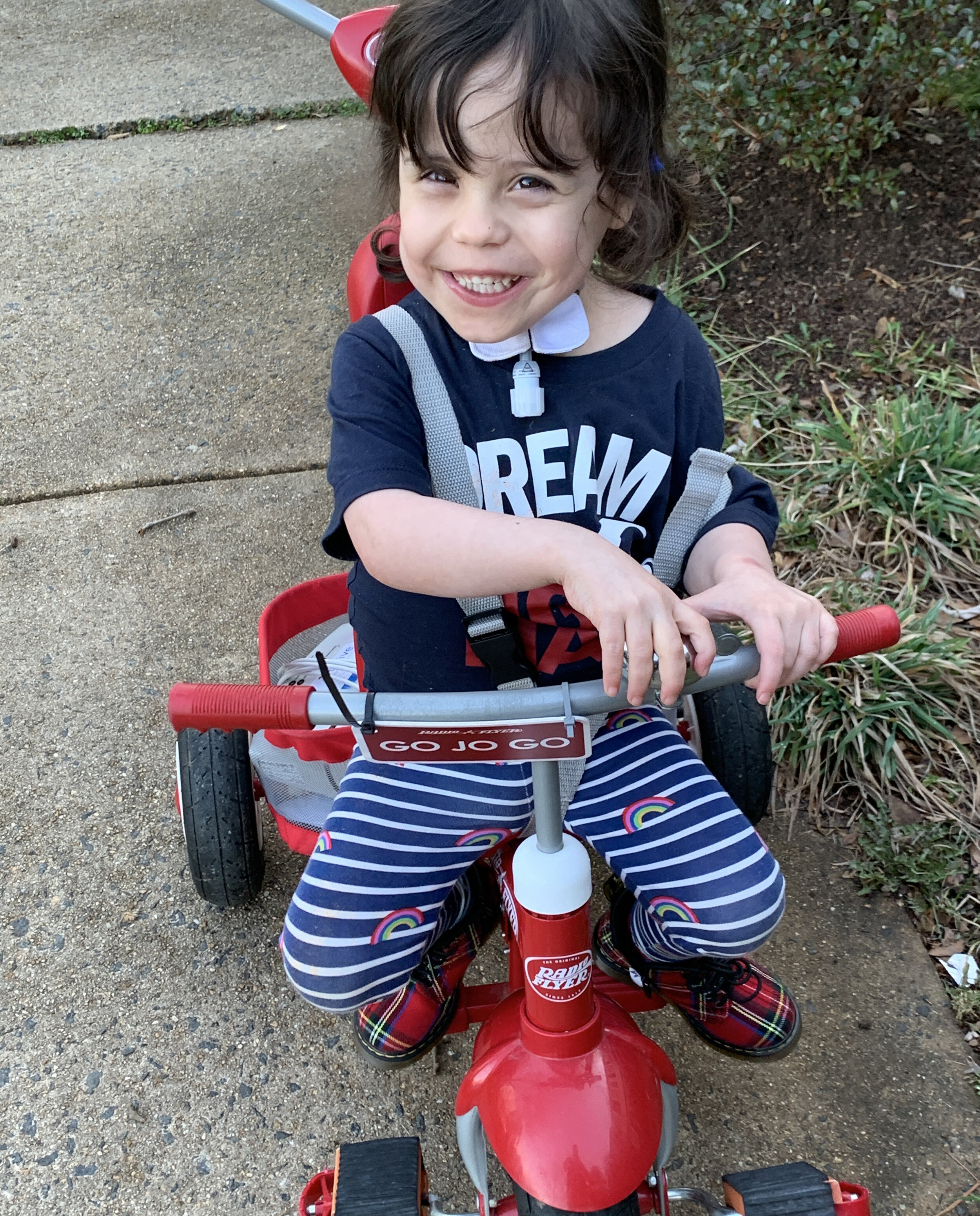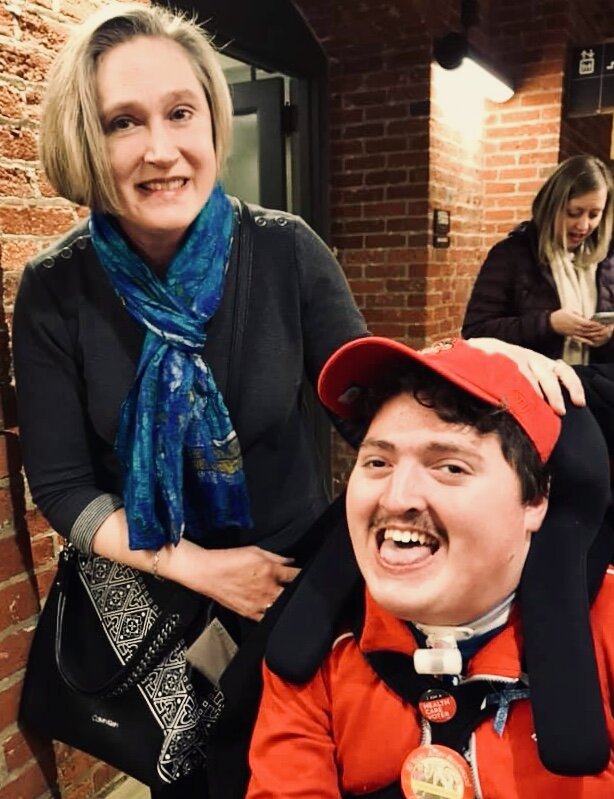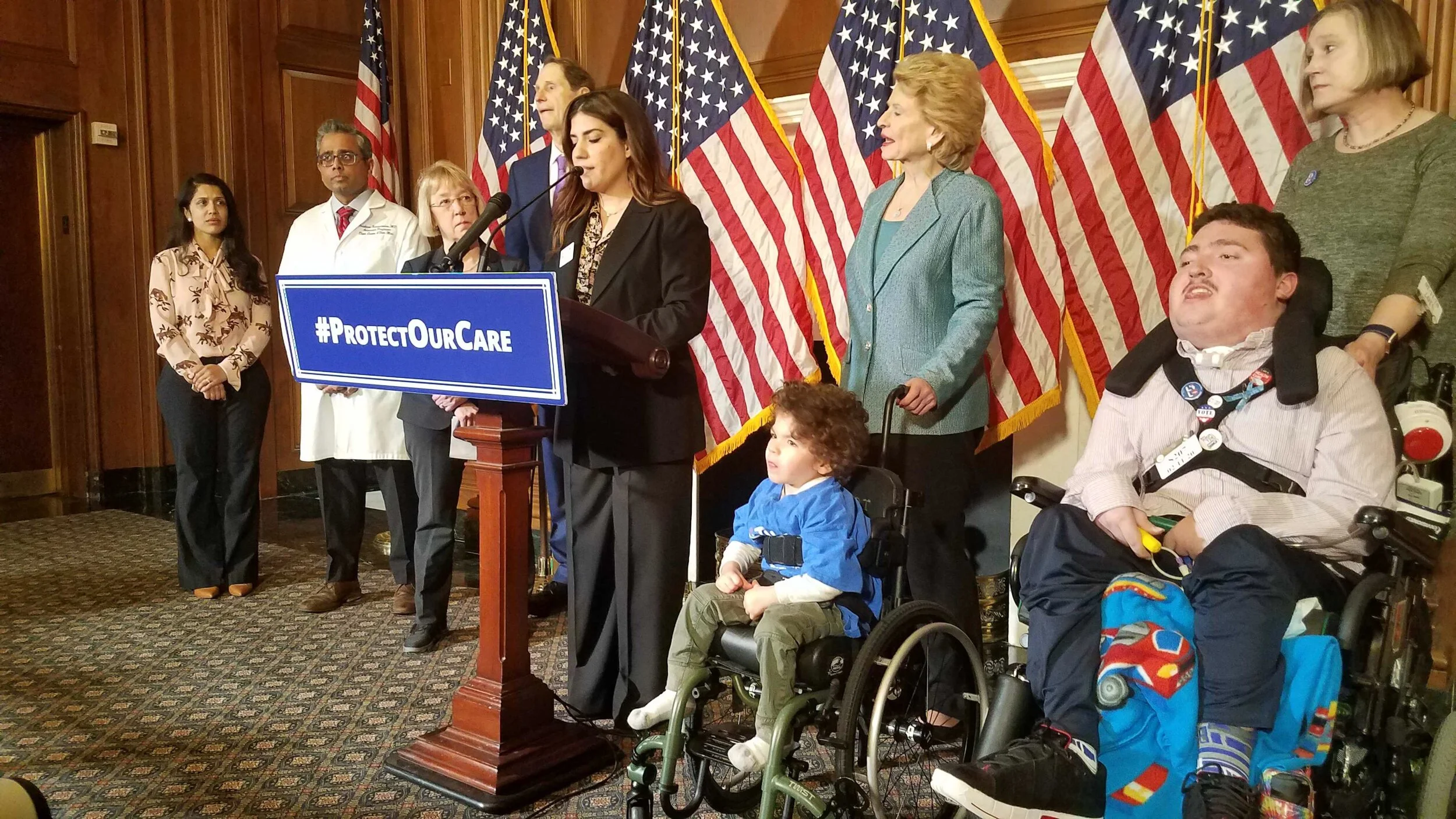Our families are being confronted with the terrifying decision to send our kids back to school, risking their lives, or keep them home and miss critical instruction and therapy. The ramifications of these choices are mind-blowing. From learning to therapy to social integration, school is the cornerstone of community inclusion for our children. What will it take for our children to continue to survive and thrive with the educational landscape so radically altered?
Maya Brown-Zimmerman lives in Ohio with her son Julian, who has a great sense of humor and loves glitching video games. Maya has multiple lung diseases as a result of a genetic disorder, which complicates the back-to-school calculations.
Cassie Walker lives in Indiana with her son Bruce, who has a great sense of humor and makes the best cup of coffee for his mom! Such a great helper. Bruce will be attending school for the first time.
Angie Voyles lives in Tennessee with her daughter Anna, who is the most caring person in the world--smart, funny, and loves everyone.
On a scale of 1 to 10, how worried are you about sending your child back to school?
Angie: Ten. Very worried.
Bruce, Cassie Walker’s son
Maya: Ten. I’m very worried. I don’t feel any better since seeing my pulmonologist last week.
Cassie: Ten. Extremely worried.
What does your child miss most about in-person school?
Angie: Anna misses the social aspects. She misses the school pizza.
Maya: “Everything, but specifically speaking, my friends and teachers,” he says. Julian is a social butterfly.
Cassie: This will be Bruce’s first time in school.
What have been some of the upsides and downsides of the online classroom? Can you see online education continuing indefinitely for our kids?
Angie: Upside--Seeing what Anna can accomplish. I’ve been able to see how she has benefitted from special services provided by her IEP. Downside--Me teaching common core math when I don’t understand it myself. I can see where IEP services are needed, even in a home teaching environment. I don’t feel online would be successful without some sort of implementations for children who require extra services.
Julian, Maya Brown-Zimmerman’s son
Maya: So it’s been interesting observing this from a few different angles. I’ve got my medically complex son, and then I have two other kids who have developmental disabilities but no medical complexities. Online schooling actually worked pretty well for Julian. He could work at his own pace. We didn’t have to worry about germs, or teachers following his 504 (it’s almost all physical adaptations, like being allowed type instead of write). The negatives were that we didn’t receive any real instruction, just worksheets, and he missed his friends. My other two kids did get more instruction (either recorded lectures or live small group video chats), but they struggled with online education and their 504s/IEPs require being in the classroom to really get services, so that was the downside.
Our district is mandating a set schedule for live online instruction. The mock schedule they put out has kids K-6 logging on at 8:30 am and logging off around 2:00 pm, and later if they have one-to-one time scheduled with their teacher for extra help. There’s a 15-minute mid-morning break, and then an hour for lunch. I’m glad it’s better than “teach yourself some worksheets,” but that much screen time isn’t going to work for a lot of kids, and it’s a schedule that is difficult for working parents who were hoping to do school around their jobs.
Cassie: We have never done online classes, but I worry that Bruce will not be able to follow along and stay on a laptop for hours on end. Online classes do not seem like they were created with disabled children in mind.
What proposals have you seen for returning to the classroom that make any sense?
Angie: None so far, but other local districts are offering kids either going back to in-person school or doing online services. I suspect our district will follow suit.
Anna, Angie Voyles’ daughter
Maya: Our district has given a proposal: classes of about 20 kids, five days per week. The state just mandated masks for K-12, but, prior to that, our district was just recommending them for grades 3-12. Other nearby districts are doing class sizes of 10-15 students, which seems much safer (some will have all-virtual classes for the first quarter), and some districts have mandated masks from the beginning. I think hybrid models, like our district is doing for grades 7-12, are safer than every day.
Cassie: I have not seen any plans for returning to the classroom that make sense at this time.
What will it take for you to put your child on a school bus or watch them go through the doors of your local school?
Angie: I don’t know. Tennessee isn’t taking much in the way of precautions. I think I would feel more comfortable with a governor who would take things more seriously.
Maya: We are keeping the older two at home. We are allowing our child who goes to the district pre-K to attend because the classes are capped at 9 students and it’s 2 hours a day, 4 days a week. However, we took a long time making a decision about our incoming kindergartner. After a meeting with district staff, we have decided to send them, because we don't see another way for them to get the services they need. But I feel like I had to choose between their education and my health and I hate that.
Cassie: At this point we’re probably waiting until a vaccine … or until transmission rates become so low that the chances of any of us catching Covid are minimal.
We’re all finding there aren’t any good answers to the challenges of school during Covid--what’s your story? What would you like to say to your governor? To your state and federal legislators? To the President? I really want to know! Email your story to me, Jeneva, and I’ll post it to our blog!


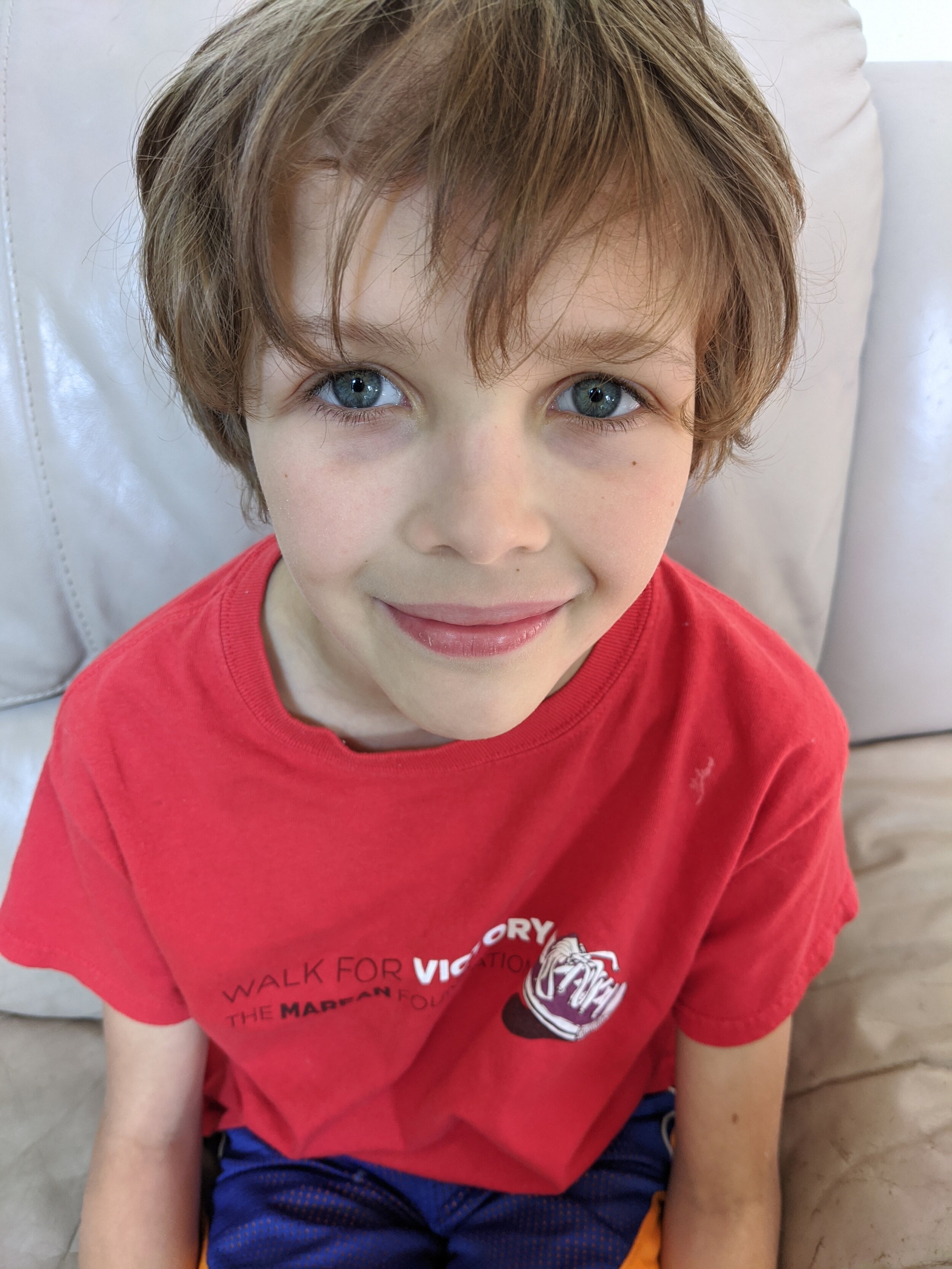


![[IMAGE DESCRIPTION: photo of four Little Lobbyists families and two service dogs sitting on the ground in front of the U.S. Supreme Court steps]](https://images.squarespace-cdn.com/content/v1/59d8124080bd5eadd869b8b7/1596045178971-DTEU4URBWTBJGVVKPEKY/scotus.jpg)





